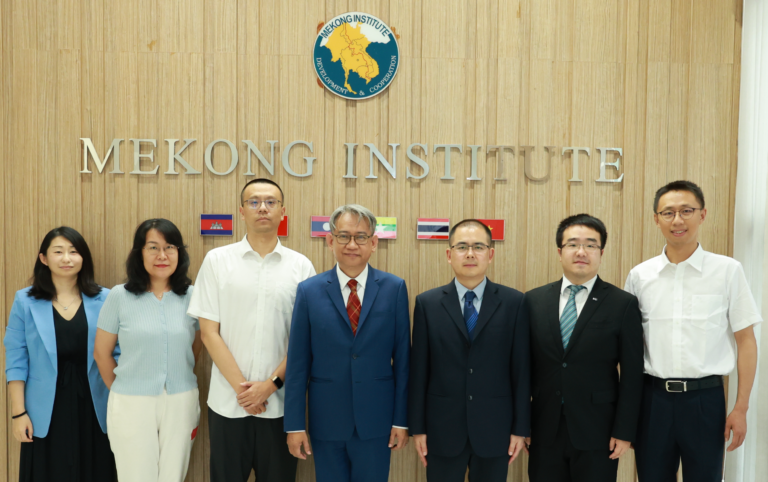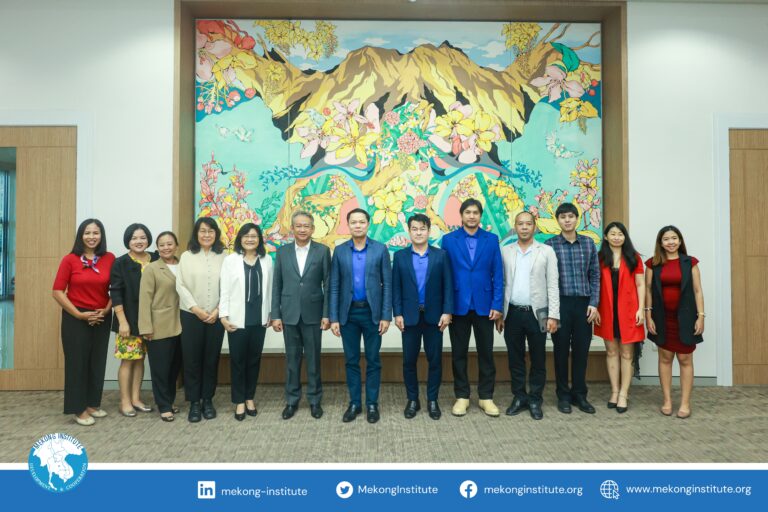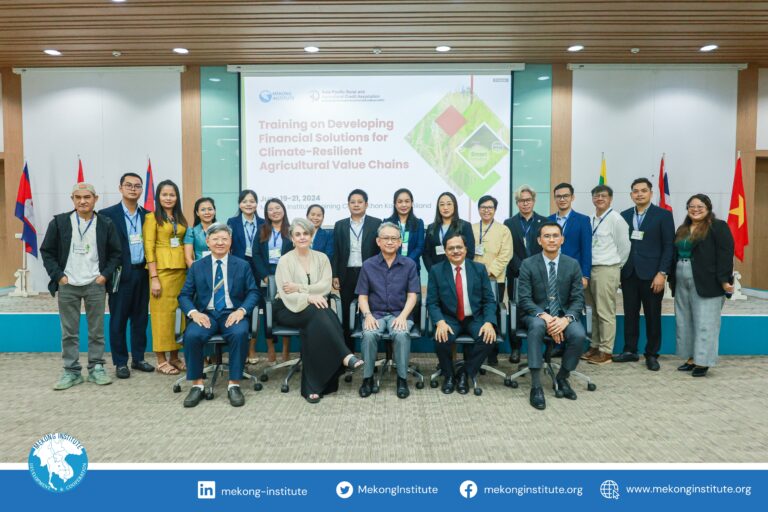The Mekong Institute (MI) is organizing a six-day Training cum Structured Learning Visit (SLV) entitled, “Strengthening Coordinated Cross-Border Systems in Agriculture Trade” from 2-7 March 2015 at MI’s residential training center in Khon Kaen. The event brings together 21 participants from the public sector, including provincial authorities and border checkpoint officials, as well as representatives from the private sectors of Cambodia, Lao PDR, Myanmar, Thailand and Viet Nam.
The program aims to enhance the participants’ knowledge of the cross-border trade facilitation framework and improve their skills on coordinated cross-border management for greater efficiency in managing agricultural trade. The six-day activity also includes a visit to the Thai-Lao Border Checkpoint in Mukdahan province of Thailand and Savannakhet province of Lao PDR to introduce participants to cross-border procedures, particularly customs procedures, sanitary and phytosanitary (SPS) inspection measures and various requirements in moving agricultural products from one country to another.
In his welcome speech, Dr. Watcharas Leelawath, MI Director, emphasized the importance of trade facilitation in cross-border trade for regional trade promotion and economic integration, especially in anticipation of the upcoming ASEAN Economic Community (AEC). He also mentioned that while some of the issues and constraints in trade facilitation in the region have already been addressed, some issues such as infrastructure are still seen as main barriers to trade promotion and progress towards regional economic integration. He likewise expressed his hope that the participants will find the training relevant and be able to apply lessons learned in promoting and working for better trade facilitation systems in the region.
This SLV is organized by MI’s Rural Development Department with funding from the New Zealand Aid Programme (NZAP).







